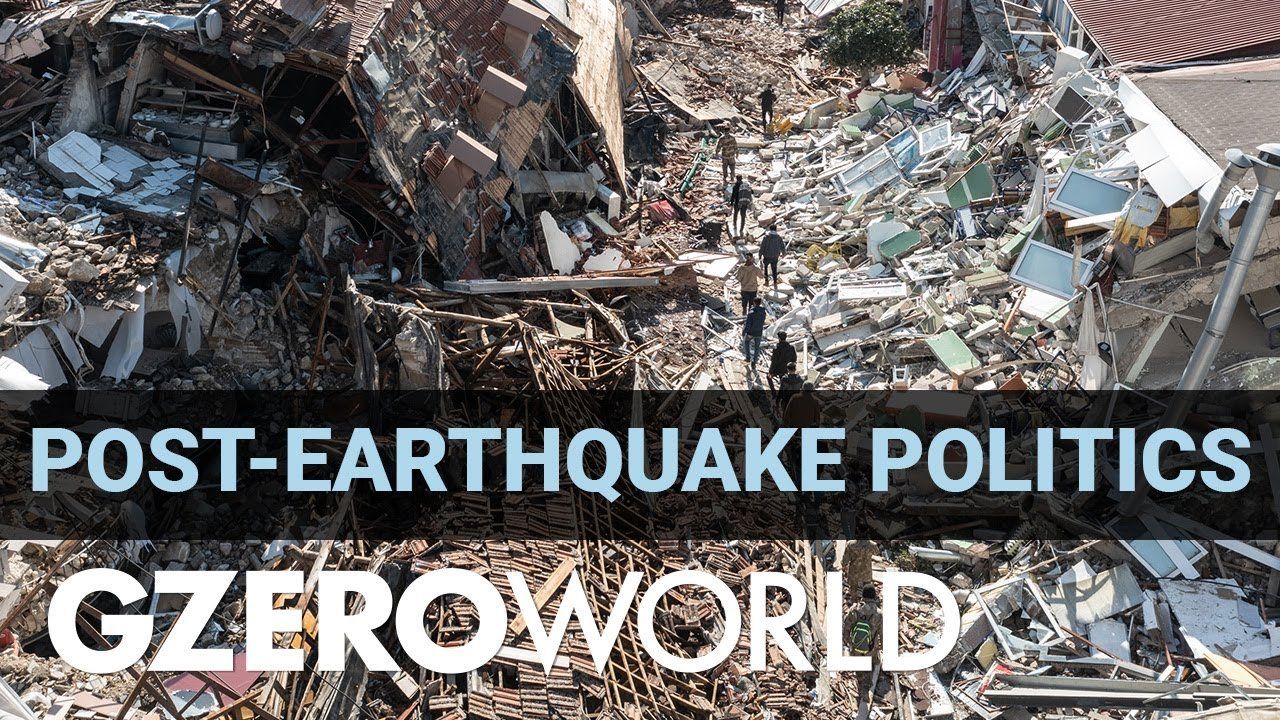GZERO World Clips
How Turkey's earthquake may shape the future of its democracy

How Turkey's earthquake may shape the future of its democracy | GZERO World

The earthquake in Turkey has sparked a fiery debate about corruption and poor governance in the country. On GZERO World, Ian Bremmer talks to David Miliband, the President and CEO of the International Rescue Committee, about the political implications of this disaster.
In the weeks following the earthquake, there's been a lot of public critisim of Turkey's building standards and accusations of corruption in the country's construction permit system. Miliband acknowledges that he is not an expert in structural engineering, but points out that the Turkish government's poor handling of the aftermath of a devastating 1999 earthquake led to the ouster of the prime minister.
Miliband describes the situation as an "absolute meltdown of the urban environment,” causing “a lot of anger” and grief. He predicts that the earthquake response will impact Turkey's upcoming election, but with 10 million lives upended in the quake, it's difficult to predict how they will “vote and participate.”
Miliband believes the response will focus on "survival, recovery, and blame," and "that's going to play out in technicolor in Turkey."
Xi Jinping has spent three years gutting his own military leadership. Five of the seven members of the Central Military Commission – China's supreme military authority – have been purged since 2023, all of whom were handpicked by Xi himself back in 2022.
In this episode of GZERO Europe, Carl Bildt examines how an eventful week in Davos further strained transatlantic relations and reignited tensions over Greenland.
In this episode of "ask ian," Ian Bremmer breaks down the growing rift between the US and Canada, calling it “permanent damage” to one of the world’s closest alliances.
For China, hitting its annual growth target is as much a political victory as an economic one. It is proof that Beijing can weather slowing global demand, a slumping housing sector, and mounting pressure from Washington.